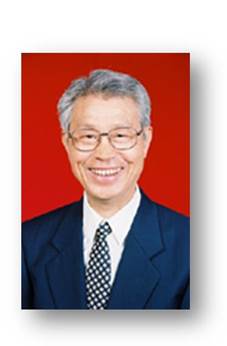Xia Jiahui, Academician of the Chinese Academy of Engineering
 Xia Jiahu was born in Taojiang County, Yiyang City, Hunan Province in 1937. He is a human and medical geneticist, as well as a pioneer of modern human and medical genetics in China, founder of Chinese “clinical genetics”, and founder of State Key Laboratory of Medical Genetics. In 2012, he established the Hunan Jiahui Genetics Hospital. Previously he was vice chairman of Expert Advisory Committee on Healthy Birth & Child Care of Ministry of Health of the People’s Republic of China. In 1985, he became consultant of the “International human chromosome abnormal karyotype registries” and editorial board member of International Journal called “Journal of Human Genetics” in 1997. In 1999, he was elected as Academician of Chinese Academy of Engineering.
Xia Jiahu was born in Taojiang County, Yiyang City, Hunan Province in 1937. He is a human and medical geneticist, as well as a pioneer of modern human and medical genetics in China, founder of Chinese “clinical genetics”, and founder of State Key Laboratory of Medical Genetics. In 2012, he established the Hunan Jiahui Genetics Hospital. Previously he was vice chairman of Expert Advisory Committee on Healthy Birth & Child Care of Ministry of Health of the People’s Republic of China. In 1985, he became consultant of the “International human chromosome abnormal karyotype registries” and editorial board member of International Journal called “Journal of Human Genetics” in 1997. In 1999, he was elected as Academician of Chinese Academy of Engineering.
In 1962, WHO encouraged to set up “medical genetics course” in medical colleges. However, China, affected by the ultra-left trend of thought, regarded “Morgan doctrine” as a reactionary heresy. In 1972, he resumed the study of “Medical Genetics” regardless of political risk, under the principle that “advanced technology is the basis, clinical service is the purpose, basic research is carried out by studying special cases, and thus the research achievements, featured by unique materials and advanced technologies, will be able to reach the international advanced level and receive worldwide recognition, while China will continuously improve her teaching and medical levels”. Meanwhile, he regarded “integrity, responsibility, conscience “as the Lab motto. In 1973, he offered “genetic counseling outpatient service” in Xiangya Hospital to carry out diagnosis and prenatal diagnosis of chromosomal disorders, and created such a new discipline as “clinical genetics”. In 1976, He wrote China’s first “Medical Genetics Lecture” textbook, and was the first to set up the “medical genetics lecture” course in Chinese medical colleges. In 1984, under the entrustment of the Ministry of Health, he started to establish the State Key Laboratory of Medical Genetic which passed the national acceptance and was open to the world in 1991, and rated as one of 6 Excellent State Key Laboratories in “life sciences” in 2001.
In 1972, professor Xia took the lead in the study of human banding chromosome technique in China, and created the world’s first 75°C grilled plate method for chromosome banding technique in 1973. In 1981, he became the world’s first scientist to locate human testis-determining gene (TDF) in Yp11.32 band. As one of the earliest research scholars to study tumor with banding technique in the world, he found a nasopharyngeal carcinoma marker chromosome t (1; 3) (q44, p11) in 1975. In 1985, he acted as pioneer in the collection, preservation and use of genetic resources in China and initiated a disease gene cloning method by using international human genome EST data and “gene family candidate disease gene computer cloning” technique in 1996. In 1998, Professor Xia successfully cloned human deafness disease gene (GJB3) and published related paper in “Nature Genetics” (Volume 20 December 1998, p370-373). This achievement broke the zero record of the cloning of genes that cause genetic diseases in China and ranked first in “Top Ten News of Chinese Basic Scientific Researches” in 1998, and listed as “one of the 25 largest outcomes in theoretical achievements” among 50-year (1949-1999) Chinese basic researches in October 1999 by the Ministry of Science and Technology.
Up till now, Professor Xia has published more than 480 papers and 19 monographs. He has won a total of 22 awards, including one award of National Science Conference Award (1978), 4 awards of First Class Award of Ministry of Health (1981, 1986, 1991, 1994), one award of the first “Cheung Kong Scholar Achievement First Class Award” of Ministry of Education (1999), one award of Prize for Science and Technology Progress of the Ho Leung Ho Lee Foundation of Ministry of Science and Technology (1999), 5 awards of National Science and Technology Progress Award (1985, 1987, 1995, 1999, 2005), one award of National Natural Science Second Class Award (2001). He has the honor of the first batch of National Outstanding Mid-aged Experts (1984), the first batch of State Council Expert for Special Allowance (1990), and the National Advanced Worker and medal winner (2000).










